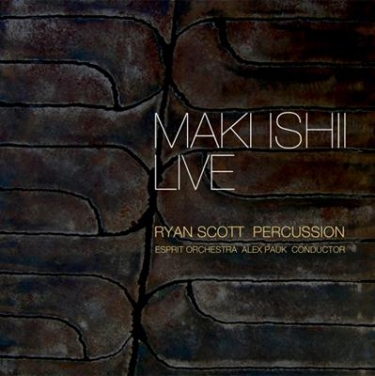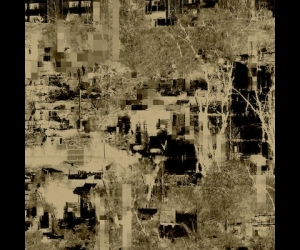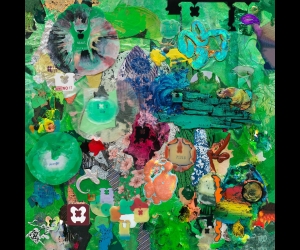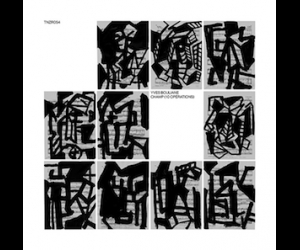
Distinguished composer, conductor, and curator Maki Ishii (1932–2003) created a body of music inspired by his lineage, heritage, and situation. The poetic sense of movement, gesture, and pace that pervades the three percussion concerti on this disc bespeaks the influence of his father, Ishii Baku (1884–1962)—a pioneer of modern dance in Japan. Also expressed here is a late-found passion for traditional Japanese music—its sources, timbres, and structures—offering original counterpoints to Maki Ishii’s more traditional German training in contemporary techniques. The poetic sense and the passion for traditional music together speak to Ishii’s intent to neither fuse nor fight against a burgeoning East-meets-West aesthetic, but rather to find ways for both worlds to cohabit, creating productive aesthetic interactions.
While the outer works for percussion and orchestra hold dramatic interest and fascinating timbres (especially the opening Saidoki), the most satisfying work on the disc is the Concertante for marimba and six percussionists. Originally written for soloist Keiko Abe and Les Percussions de Strasbourg for their twenty-fifth anniversary, its stunning sound worlds alternate between agreement and antagonism, expressed in suspended contemplations of tone colour sequenced against intensely rhythmic outbursts. Listened to along its entire arc, this Concertante presents a satisfying shape, pace, formal subversions, and inventive variation to remain impressive after numerous hearings.
Soloist Ryan Scott is wonderfully recorded on every track. The quality is clear and crisp, giving a front-row experience to impeccable performances of truly astounding virtuosity and sensitivity. The same can be said for Alex Pauk and his Esprit Orchestra, who give solid performances on the first and last tracks. Unfortunately, the sound quality of this live recording occasionally distracts from the listening experience—the occasional cough or snippet of hushed talking mar the overall effect, and the orchestra is set too far back in the mix. Nonetheless, very much worth a listen, especially for newcomers to Ishii’s work.


